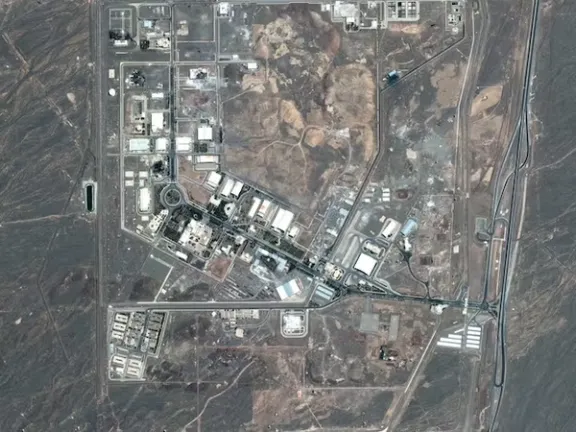Iranian Cleric Calls Hijab Defiance Treason
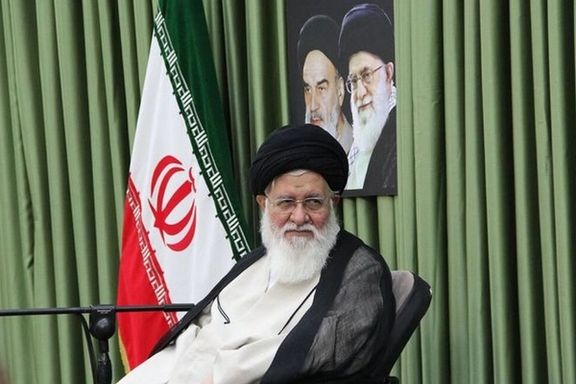
A firebrand senior cleric has equated hijab defiance with treason amid nationwide rebellion against the Islamic dress codes of Iran’s theocratic rulers.

A firebrand senior cleric has equated hijab defiance with treason amid nationwide rebellion against the Islamic dress codes of Iran’s theocratic rulers.
Ahmad Alamolhoda, who is close to Iran's ruler Ali Khamenei and is the father-in-law of President Ebrahim Raisi, remarked on Wednesday, "Those women who improperly wear hijab should be aware that they are collaborating with an enemy who has targeted not only Islam but also the soil of the country."
The Iranian government has long drawn parallels between dissent and supporting ‘enemy’ nations, usually referring to the US and Israel. Hundreds of Iranians have been arrested on trumped up charges of collaborating with the enemy and espionage while the regime cracks down on all forms of dissent as its legitimacy crumbles.
Alamolhoda’s comments come in the wake of a speech by Ayatollah Khamenei, stressing the significance of compulsory hijab for women as the state fails to stem the tide of disobedience, stemming back to the 2022 Women, Life, Freedom uprising.
Even legislative efforts surrounding hijab have been met with contention. A bill, initially proposed by the government and later revised by hardline factions in parliament, has faced scrutiny for proposing penalties, including heavy fines, for women not adhering to the dress code.
Despite efforts to pass the bill, it has not been approved by the Guardian Council yet, which has requested amendments from parliamentarians.
The head of the Judiciary and Legal Commission of the Parliament, Mousa Ghazanfarabadi, detailed the latest criticisms from the Guardian Council on Tuesday saying that final amendments will be made in the coming week.
International scrutiny over Iran's mandatory hijab laws has intensified, with human rights experts from the United Nations expressing concerns over systematic discrimination against women.
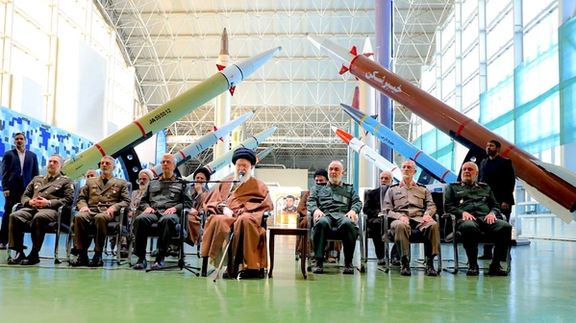
Analysis: For two decades, Iran's Supreme Leader's "nuclear fatwa" has served as a shield for Tehran's denial of nuclear weapon ambitions. But how trustworthy can this fatwa really be?
"According to the [Supreme] Leader’s opinion, going in this direction [making the atomic bomb] is now forbidden, because he is a mujtahid [religious scholar]; maybe he will change [his opinion] tomorrow," Shahid Beheshti University President Mahmood-Reza Aghamiri said recently in an interview.
The nuclear engineer went on to posit that if Ayatollah Ali Khamenei’s “opinion” changed – Iran would indeed have the capacity to build a nuclear weapon.
Amidst the ongoing tensions between the regime and Israel, following the killing of seven members of the IRGC’s Quds Force in Damascus and the subsequent pressure from anti-Israeli Islamists on Tehran to respond, the raising of the fatwa has heightened concerns regionally and internationally about the potential spread of war.
Contrary to widespread perception, a fatwa itself is not a legal document – but, an advisory opinion on Islamic law offered by a high-ranking cleric. It is not set in stone and can be changed at any time.
But nonetheless, when examining Khamenei's "nuclear fatwa", three questions have remained unanswered for public opinion from the outset: Was the opinion expressed by Khamenei really a fatwa? Is Ali Khamenei in the position of issuing fatwas? And, how and for what purpose was this opinion sold to the global community under the title of a fatwa?
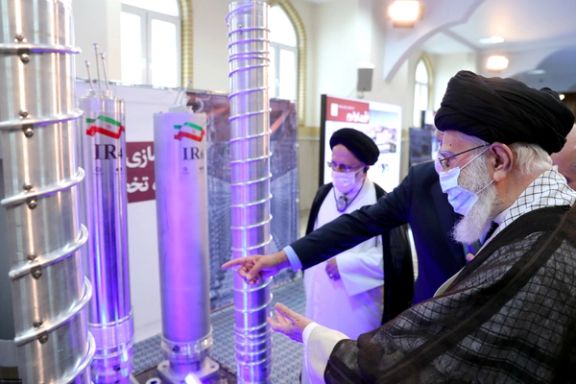
Fatwa, opinion or statement?
His statement to the nuclear disarmament conference on April 10, 2010, was presented as Khamenei's "nuclear fatwa". Typically, heads of state issue statements or messages to conferences, not fatwas. The content of this message bears no resemblance to the fatwas issued by Shia jurists throughout history. Khamenei's statement opens with "we believe," a phrase not traditionally used by Islamic jurists to begin their fatwas. It reads:
"We believe that besides nuclear weapons, other types of weapons of mass destruction such as chemical and biological weapons also pose a serious threat to humanity. The Iranian nation … feels more than any other nation the danger that is caused by the production and stockpiling of such weapons… We consider the use of such weapons as haram [forbidden] and believe that everyone must make efforts to secure humanity against this great disaster.”
Shia jurists do not include public opinions within the text of a fatwa. In the Shia jurisprudence tradition, jurists typically also do not provide reasons for their fatwas within the body of the text itself, contrasting with Khamenei's approach of arguing for his opinion in this statement. It is also in contrast with other fatwas, given the rarity of fatwas issued on this particular topic. Integrating this opinion into any of the 52 chapters of Shia jurisprudence, as outlined in classical Shia texts, proves difficult.
Mufti or leader?
Before and after becoming the Supreme Leader, Ali Khamenei never held the authoritative position required to issue fatwas. His appointment to the leadership by the Assembly of Experts occurred in the absence of a high-ranking mujtahid knowledgeable in governance – indeed, he was not a source of emulation.
For this very reason, the constitution was revised (Article 5) so that a non-mufti can also become a leader. At the time, one of the prominent Shia jurists in Qom, Hossein Ali Montazeri rejected him being a mufti: "He [Khamenei] is not at the level of religious authority; he has no right to issue a fatwa." Some religious organizations in Qom have similarly rejected his position as a mufti.
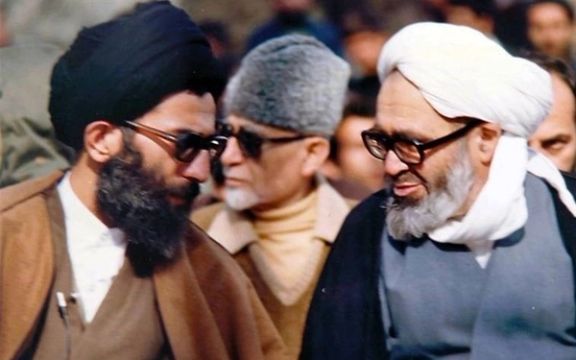
The history of this “fatwa”
In 2003, at the onset of Iran's nuclear crisis, Khamenei first declared the production, stockpiling, and use of nuclear weapons as forbidden. Six years later, during a more complex phase of this crisis in February 2008, he reiterated this prohibition in a public speech.
The statement, which was presented as Khamenei's fatwa, was drawn from earlier documents and released during a period of increased global scrutiny for Tehran. This occurred as the international community focused on revelations concerning diverse aspects of Iran's nuclear program, leading the UN Security Council to pass successive resolutions against it. Between 2006 and 2010, six sanctions resolutions targeting Tehran's nuclear endeavors were enacted, and Khamenei's purported fatwa was released in 2010 amidst this backdrop.
Framing this opinion as a fatwa aimed to alleviate pressure by invoking religious beliefs that would persuade the audience of its credibility. Of course, the international community had not yet fully understood the blurred lines between religious and political leadership in Iran, with some viewing Khamenei as the country's spiritual leader.
This fatwa also pursued two other goals: to make the nuclear program appear peaceful, which was doubted by the international community, and to provide legitimacy for the project of building the Islamic Empire, of which nuclearization was considered an integral part.
The authorities even tried to formalize this fake fatwa by incorporating it into a United Nations resolution. By presenting Khamenei's opinion as a fatwa, the orchestrators showed deep insight into international dynamics. Aware of the pressures on Iran, they aimed to lessen these by strategically blending religious rhetoric with political maneuvers, targeting global perceptions and responses to Iran's nuclear ambitions.
The market for this fatwa
Initially, this alleged fatwa did not garner significant attention from the media and Western politicians. However, from 2013 to 2015, during the JCPOA negotiations, it was frequently cited and mentioned by the media, think tanks, and American officials.
The book "The Undisclosed Secret" by former Foreign Minister Mohammad Javad Zarif and colleagues about the nuclear negotiations reveals in various sections how the Iranian negotiating team leveraged this fatwa to steer the JCPOA in their favor.
This is what US Secretary of State John Kerry said about the fake fatwa in 2014, showing a degree of naiveté on the issue :
“I have great respect for a fatwa. A fatwa is a very highly regarded message of religious importance. And when any fatwa is issued, I think people take it seriously, and so do we, even though it's not our practice. But we have great respect for what it means… the art, the requirement here, is to translate the fatwa into a legally binding, globally recognized, international understanding. … President Obama and I both are extremely welcoming and grateful for the fact that the supreme leader has issued a fatwa”
Thus, the embassies and offices of the Islamic Republic abroad, particularly the representative office in New York, which has focused on building a lobby over the last two decades, have played an undeniable role in the production, distribution, and promotion of the Supreme Leader’s opinion as a fatwa.
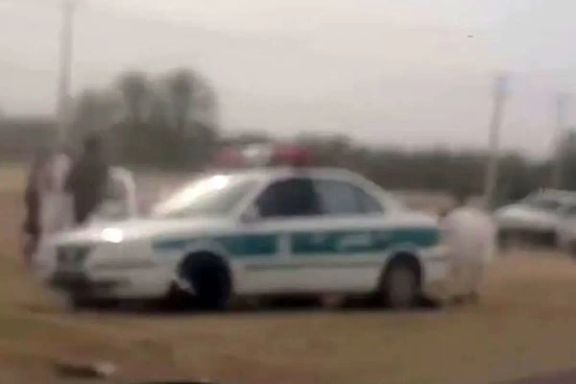
Six law enforcement officers have been killed by militants during an ambush on police vehicles in Sistan and Baluchestan province on Tuesday.
Jaish al-Adl, a militant group advocating for enhanced rights and improved living conditions for the Baluchi ethnic minority, has claimed responsibility for the attack. Over the past few years, the group has carried out multiple attacks on Iranian security forces in the province.
According to reports from rights group Halvash, the targeted police vehicles were on patrol along the Sib and Suran county route when they came under attack.
An informed source, speaking to the Baloch Activists Campaign, disclosed that the assailants from Jaish al-Adl utilized silencers during the ambush.
Tasnim News Agency, affiliated with the Islamic Revolutionary Guard, reported that five law enforcement officers were killed at the scene of the clash, with one succumbing to injuries after being rushed to the hospital due to the severity of the wounds.
The attack comes in the wake of previous deadly clashes between Jaish al-Adl and military forces on April 4 in the cities of Sistan and Baluchestan province, which lasted for more than 12 hours.
Iranian military sources confirmed the deaths of 18 members of the group in the clashes, with an additional 16 members of the Iranian forces losing their lives, 12 of whom were members of the IRGC, while four others were law enforcement personnel.
However, Jaish al-Adl has refuted the figures, claiming that the death toll of Iran’s military personnel stands at approximately 200.
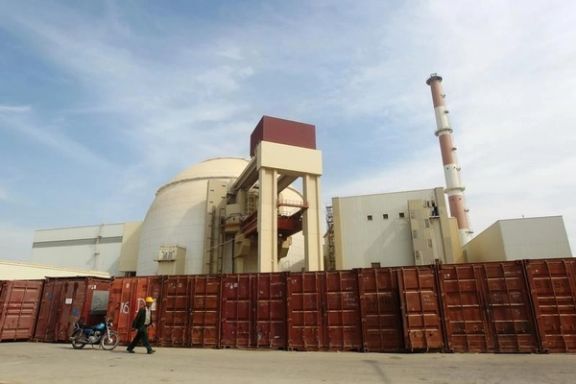
In the wake of last week's airstrike in Iran’s consulate in Damascus, Israel has reportedly indicated its readiness to target Iranian assets should Iran launch a direct retaliatory attack.
According to a report by the London-based Elaph News, citing an “anonymous Western security official,” Israel has been conducting air force drills, specifically preparing to target Iranian nuclear facilities and other critical infrastructure.
The airstrike killed Iranian Revolutionary Guard commander Mohammad Reza Zahedi, alongside six other senior members of the IRGC.
Although Israel has neither confirmed nor denied involvement in the strike, both Damascus and Tehran have blamed Israel.
However, unnamed US intelligence sources, as reported by CNN, suggest that Iran is unlikely to launch a direct attack, fearing retaliation from both the US and Israel.
Instead, Iran will more likely use its regional proxies, which since Iran-backed Hamas’s invasion of Israel on October 7, have launched attacks from Syria, Lebanon and Yemen.
Both Iran and its proxy groups, including Hezbollah, have pledged revenge for the strike. Iran's supreme leader Ayatollah Ali Khamenei's adviser has warned that Israeli embassies are no longer safe, while Hezbollah leader Hassan Nasrallah has promised an imminent Iranian response.
Israeli Prime Minister Benjamin Netanyahu said in a recent security cabinet meeting, “Iran has been acting against us for years — directly and via proxies. And, therefore, Israel acts against Iran and its proxies — defensively and offensively”.
As the Israeli military bolsters its manpower and defenses, Israeli Defense Minister Yoav Gallant announced that Israel has “completed preparations for a response against any scenario that would develop against Iran.”
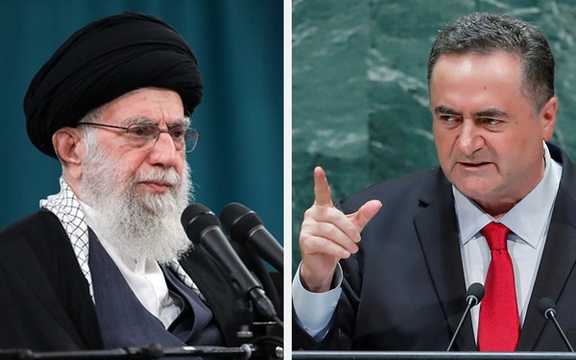
Iran's Supreme Leader, Ali Khamenei, said on Wednesday that Israel "must be punished and it shall be" for attacking the Iranian embassy compound in Syria that killed top IRGC generals.
In a major escalation of Israel's war with regional adversaries, suspected Israeli warplanes launched a precision strike on Iran's consulate in the Syrian capital on April 1 in a strike killing seven IRGC Quds Force officers involved with controlling Iran's armed proxies.
"When they attack the consulate, it is as if they have attacked our soil," Khamenei said in a speech marking the end of the Muslim holy month of Ramadan. "The evil regime made a mistake and must be punished and it shall be," he added.
Iranian official have repeatedly threatened retaliation but so far no attack has been launched, with amny in Iran urging caution and "strategic patience."
In an apparent response to Khamenei, Israeli Foreign Minister Israel Katz said on Wednesday that Israel will respond if Iran attacks Israel from its own soil.
"If Iran attacks from its own territory, Israel will respond and attack in Iran," Katz said in post on the social media platform X.
Iran backs groups that have entered the fray across the region since Israel launched its invasion of Gaza following the October 7 attack on southern Israel by Hamas that killed more than 1,000 civilians.
Some 33,360 Palestinians have been killed in six months of Israeli bombardment of Gaza, according to unverified numbers issued by Hamas. Israel says around 10,000 Hamas militants were among those who died during its military operation.
The Iran-backed Lebanese Hezbollah group has exchanged fire on a daily basis with Israel, while Iraqi groups have fired on US forces in Syria and Iraq and the Houthis of Yemen have targeted shipping in the Red Sea and the Gulf of Aden.
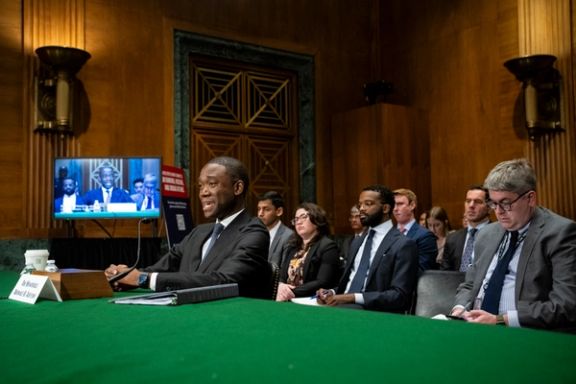
US Senators heaped harsh criticism on President Joe Biden in a hearing Tuesday, accusing the administration of putting Americans “in harm's way” with releasing sanctioned funds to Iran.
"Every dollar this administration gives to Iran is another dollar that will be used against our sons and daughters,” said Senator Tim Scott (R-SC) at a Banking Committee hearing. “The treasury has the ability to stop the dollars… that bolsters the Iranian regime. However, this White House has reduced those barriers through so-called electricity waivers…, licenses, and further billion-dollar payouts.”
Biden’s Iran policy has been a constant source of controversy, especially after October 7th when Hamas, funded and equipped by the Iranian regime, rampaged Israeli areas bordering Gaza, killing hundreds of civilians.
The Senate hearing Tuesday, titled Countering Illicit Finance, Terrorism and Sanctions Evasion, aimed to explore the ways in which the administration’s decisions may have benefited Iran financially and the ways in which such benefits could be stopped.
Testifying in the hearing, Deputy Secretary of the US Treasury Adewale O. Adeyemo admitted that “any dollar” made available to Iran “will go towards their violent activity before they deal with their people.”
“What we’ve seen time and again from the Iranian regime, is that… they put the IRGC first,” he added. “That’s partially why almost none of the humanitarian money has been used for humanitarian purposes, because they don’t care about getting food and drugs for their people.”
The Biden administration has always maintained that funds made available to Iran through ‘third party’ banks (in Qatar, for instance) can only be used for humanitarian purposes. But Biden critics say money is fungible and even if funds are used only for permissible goods, it would free an equal amount somewhere else that can be used for malign activities.
“The Biden administration has acted as Iran’s best friend,” Senator John Kennedy (R-LA) told the hearing. “Iran is not our friend. Biden keeps giving Iran money to buy weapons and try to kill us…Every dollar the US President gives Iran access to will support terrorism aimed at Americans and our allies.”
Other major themes in the hearing were waiving sanctions and Iran’s oil revenue, which has risen dramatically since Biden took office and ended the 'maximum pressure' campaign of former President Donald Trump.
“In spite of US sanctions, Iran's crude oil exports grew by roughly 50% in 2023 to a 5-year high of 1.3 million barrels per day, a vast majority of which goes to China,” Democratic Senator Bob Menendez told the hearing. "The US is reticent to sanction China and its actors."
The Biden administration has turned a blind eye on Iran’s oil exports, partly because it’s challenging to enforce strict and effective sanctions on China, and partly because it seeks to keep the Islamic government in Tehran content enough not to veer towards a more aggressive path with regards to its nuclear program.
Moreover, President Biden may be worried about a supply shortage and a sudden rise in oil prices in an election year. Iran has on many occasions warned that it would ‘close’ the Strait of Hormuz, a narrow but critical waterway through which around 20 percent of all global oil and petrochemicals ships.
This would be a high-risk proposition for Tehran as it would likely draw a harsh response from the United States –something the rulers of Iran want to avoid, their rhetoric notwithstanding. But if they were to act on their threat, however misjudged and short-lived their action might be, the global economy –and Joe Biden– would no doubt suffer.
"Iran can guarantee an election loss for President Biden,” energy expert and former White House special assistant said in an interview with CNBC Tuesday. “Iran can send pump prices to $6 or higher. They can do that. And Biden knows that they can do that."
